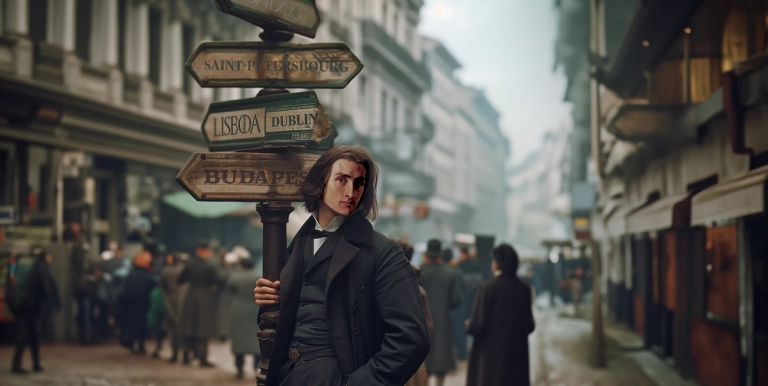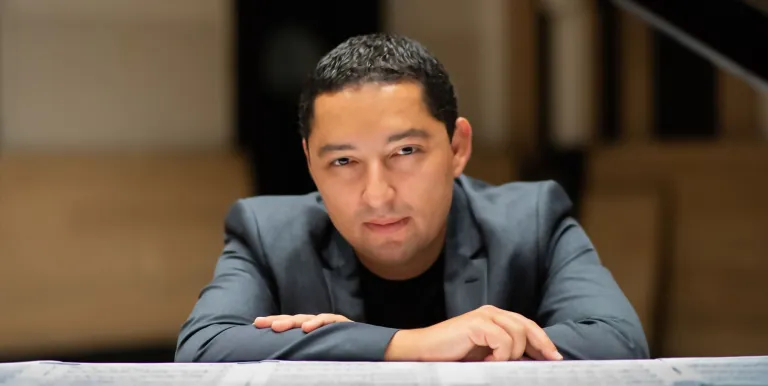one interval
Featuring:
Wagner–Liszt
Fantasy on Themes From Rienzi
Liszt
Transcendental Etude No. 10 in F minor
Paganini
24 Caprices for Solo Violin, Op. 1 – No. 24 (in A minor)
Liszt
Paganini Etudes – No. 6 (in A minor)
Fazıl Say
Paganini Jazz
Chopin–Liszt
Six Polish Songs – No. 5: ‘Meine Freuden’ (‘Moja pieszczotka’/‘My Darling’)
Schubert–Liszt
Ständchen (‘Serenade’)
Schubert
Schwanengesang, D. 957 – No. 4: ‘Ständchen’ (‘Serenade’)
Liszt
Hungarian Rhapsody No. 13 in A minor
While there have always been instrumentalists with remarkable technical skills, it is no exaggeration to say that the modern concept of virtuosity was created by Franz Liszt in the 1830s. Not, of course, without precedents: for example, Niccolò Paganini, considered ‘the devil’s violinist’, had a huge impact on him. At this concert, we will explore how Paganini’s mastery of the violin so enchanted Liszt, he in turn conquered all of Europe with his dazzling piano playing.
Liszt exerted an influence on the musical life of Europe that was at least as intense as the one it exerted on him. Between the ages of 28 and 36, he travelled all over Europe: from Lisbon to Saint Petersburg and from Dublin to Istanbul, giving nearly a thousand concerts as a pianist as he simultaneously redefined the notion of virtuosity, invented the genre of the solo piano recital, created the phenomenon of the cult of stardom and played an active role in establishing the concept of classical music. Under the guidance of Szilveszter Szélpál, expertly assisted by Gergely Fazekas, we will follow in Liszt’s footsteps on a virtual tour of a number of important European concert venues he visited, where we will learn what effect Paganini’s concert in Paris had on the young musician, how he launched his international concert career, how he put together his programmes, what marketing tricks he used to fire up his audience, and how he then provoked feverish, sometimes almost delirious, reactions from them. Evoking the sounds of Liszt and Paganini playing their respective instruments will be pianist József Balog, and violinist Sebestyén Sztathatosz.
Age: 9-16 year
Presented by: Müpa Budapest
-
We wish to inform you that in the event that Müpa Budapest's underground garage and outdoor car park are operating at full capacity, it is advisable to plan for increased waiting times when you arrive. In order to avoid this, we recommend that you depart for our events in time, so that you you can find the ideal parking spot quickly and smoothly and arrive for our performance in comfort. The Müpa Budapest underground garage gates will be operated by an automatic number plate recognition system. Parking is free of charge for visitors with tickets to any of our paid performances on that given day. The detailed parking policy of Müpa Budapest is available here.










